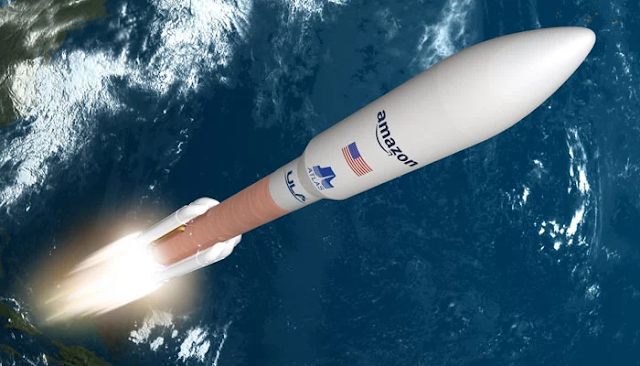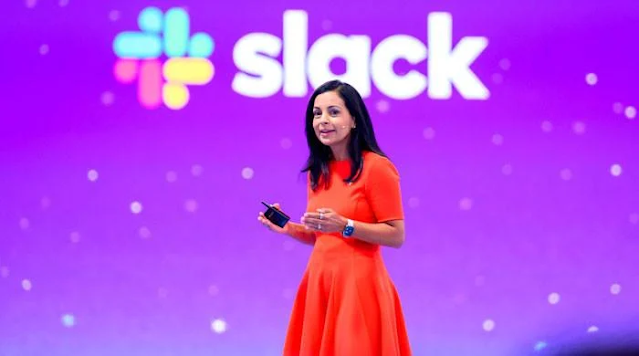Challenge to Elon Musk: Amazon Set to Launch First Kuiper Internet Satellite
In the realm of the new space race, two prominent billionaires have emerged as frontrunners. Elon Musk, the visionary CEO of SpaceX, and Jeff Bezos, the founder of Amazon, are locked in a fierce competition to conquer the skies. At the heart of this rivalry lies a quest for global internet dominance. While Elon Musk's SpaceX took an early lead with its ambitious Starlink project, Jeff Bezos' Amazon is gearing up to launch its own satellite constellation, Kuiper, in a bid to stake its claim in the growing space-based internet industry.
The Starlink Success Story:
SpaceX's Starlink venture, initiated in 2019, has rapidly evolved into the industry's juggernaut. With the deployment of over 3,700 operational satellites and plans to expand its constellation to tens of thousands more, Starlink is positioned to offer high-speed, low-latency internet access to users across the globe. Musk's ambitious project has already earned SpaceX a significant share of the burgeoning satellite internet market.
Amazon's Kuiper: A New Challenger Approaches:
Not one to be left behind, Amazon announced its own satellite internet initiative in 2019, appropriately named "Project Kuiper." The project's objective is to deploy a constellation of more than 3,200 low Earth orbit (LEO) satellites to provide affordable broadband internet services to underserved and remote regions worldwide. Kuiper is poised to challenge Starlink's dominance, but its success is far from guaranteed.
The Challenges Ahead:
As Amazon prepares to launch its first Kuiper satellite, it faces several formidable challenges:
1.Competition with SpaceX: Elon Musk's SpaceX is already well ahead in the race, having launched thousands of Starlink satellites and initiated beta service in multiple countries. Amazon must catch up quickly to establish a meaningful presence in the satellite internet market.
2. Regulatory Hurdles: The Federal Communications Commission (FCC) and international regulatory bodies play a crucial role in the approval and coordination of satellite constellations. Navigating regulatory requirements can be a complex and time-consuming process.
3. Technical Hurdles: Deploying thousands of satellites into LEO is a monumental engineering feat. Amazon's success hinges on its ability to manage the technical challenges of launching, maintaining, and controlling a vast satellite constellation.
4. Consumer Demand: While there is a growing demand for internet access in remote and underserved areas, it remains uncertain whether the market can support multiple satellite internet providers. Amazon will need to differentiate itself from SpaceX and other potential competitors to attract and retain customers.
5. Infrastructure Development: Building ground-based infrastructure to support satellite internet services, including user terminals and ground stations, requires substantial investment and logistical planning.
Amazon's Competitive Advantage:
Despite these challenges, Amazon possesses several advantages that could enable it to compete effectively with SpaceX and other satellite internet providers:
1. Deep Pockets: Amazon is one of the world's wealthiest companies, which means it has the financial resources to invest heavily in Project Kuiper and absorb initial losses as it builds out its satellite constellation.
2. Global Reach: Amazon has a vast global customer base and extensive distribution networks. This existing infrastructure could give it an edge in reaching remote and underserved communities.
3. Experience in Cloud Services: Amazon Web Services (AWS), the company's cloud computing division, is a dominant force in the tech industry. Amazon can leverage its expertise in cloud services to provide a seamless and integrated internet experience.
The Space Internet Revolution:
The emergence of companies like SpaceX and Amazon in the space-based internet arena is indicative of a broader revolution in the way we access the internet. Traditional internet infrastructure is often inadequate in rural and remote areas, and satellite internet offers a promising solution to bridge the digital divide.
As Amazon prepares to launch its first Kuiper satellite, it faces a formidable challenge in catching up to SpaceX's Starlink. However, the competition between these tech giants promises to drive innovation, improve service quality, and expand internet access to previously unreachable regions of the world.
Ultimately, the success of Amazon's Kuiper project will depend on its ability to overcome the challenges it faces and offer a compelling alternative to the services already provided by SpaceX. The battle for supremacy in the space internet industry is far from over, and consumers are likely to benefit from the technological advancements and expanded access that these two giants bring to the table.



Comments
Post a Comment